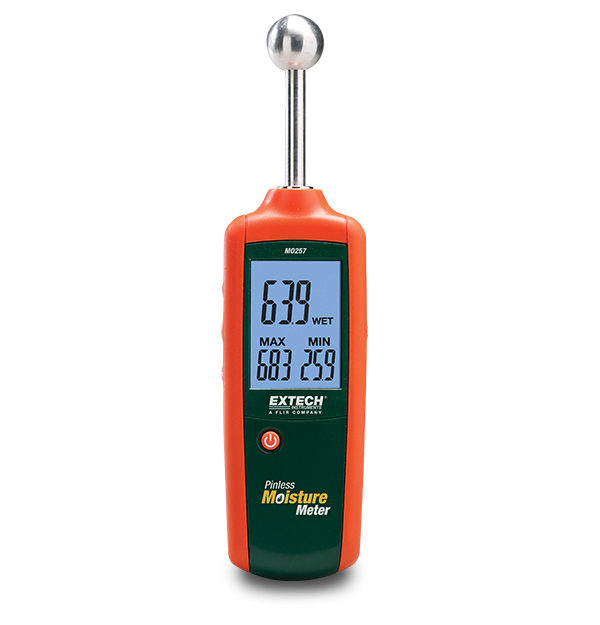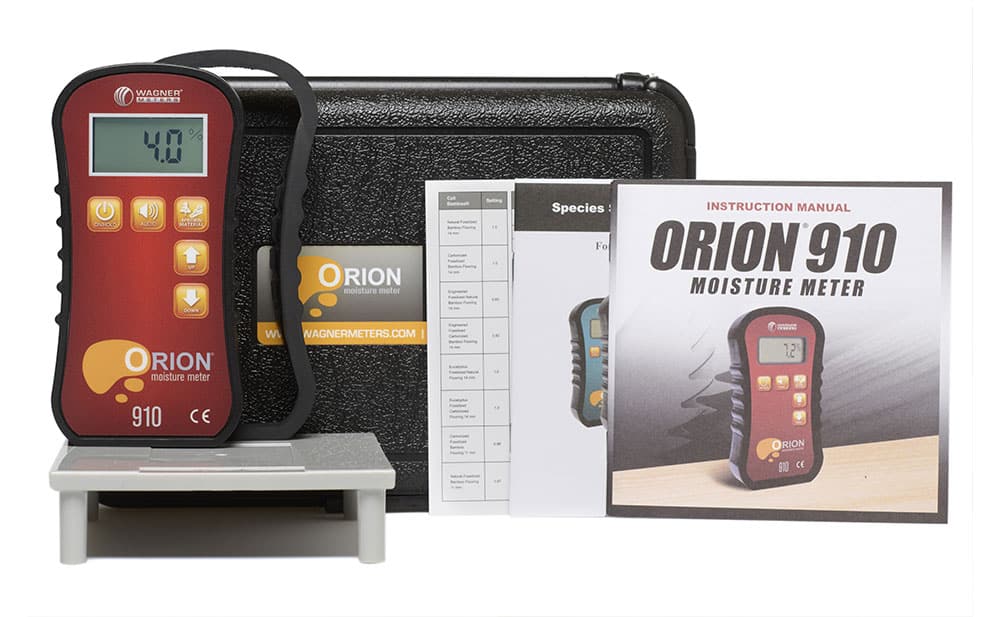Look Into the Globe of Moisture Meters: Whatever You Need to Know
In the realm of moisture meters exists a world of precision and practicality that often goes unnoticed. These tools, while apparently simple, hold a riches of information that can significantly influence different industries and applications. Recognizing how moisture meters run, the different types readily available, and their diverse usages can lose light on their significance in ensuring top quality and performance. By checking out the complexities of moisture meters, one can reveal an important device that transcends mere dimension, offering insights that can make a significant difference in countless fields.
How Moisture Meters Work
Moisture meters run by measuring the electrical conductivity or capacitance of products to figure out the moisture material existing. These meters are indispensable devices throughout various markets, consisting of construction, agriculture, and woodworking. By utilizing different techniques such as pinless or pin-type technology, moisture meters supply exact analyses that help professionals make educated decisions.
Pin-type moisture meters work by inserting the sharp pins right into the product being examined. On the other hand, pinless moisture meters use electro-magnetic signals to check a bigger area without triggering any damage to the product's surface.
Regardless of the approach made use of, wetness meters play a crucial duty in protecting against concerns such as mold and mildew growth, architectural damage, or product defects brought on by excess dampness. Comprehending exactly how these meters work is crucial for making certain the high quality and integrity of products in different applications.
Types of Moisture Meters
Provided the vital role dampness meters play in different industries, it is vital to comprehend the different kinds available to specialists for precisely assessing dampness levels - Moisture Meter. There are largely two primary kinds of wetness meters: pin-type and pinless dampness meters

On the various other hand, pinless moisture meters make use of electromagnetic sensing unit plates to scan a bigger area of the product without causing any type of damage. This kind appropriates for quickly scanning big areas and is frequently used for floor covering, walls, and ceilings. Pinless meters are practical for taking readings on completed surfaces without leaving any kind of visible marks.
Both kinds of moisture meters have their benefits and are chosen based on the details demands of the work at hand. Recognizing the differences in between these types is critical for professionals to make exact moisture evaluations.
Applications Throughout Industries
Building and construction experts rely on dampness meters to examine the moisture degrees in building products like drywall, concrete, and timber, which is vital for maintaining architectural stability and protecting against problems like rot or mold and mildew. The flooring sector utilizes moisture meters to gauge the moisture material in subfloors prior to setting up numerous floor treatments, preventing expensive damages due to excess wetness. In the food sector, dampness meters are made use of to check and manage moisture levels in products such as grains, nuts, and dried fruits to keep quality and quality.
Tips for Utilizing Dampness Meters
Utilize the wetness meter's calibration setups to check guarantee exact analyses when measuring you can try this out the wetness web content in various products. Calibration is vital for the correct functioning of a wetness meter. Prior to each usage, it is advisable to check and change the calibration settings according to the certain product being examined. Additionally, see to it the meter is readied to the proper dampness range for the material you are measuring to obtain the most accurate results.
When making use of a pin-type dampness meter, place the pins to the proper deepness suggested for the material being tested. This guarantees that the moisture readings are taken from the right depth within the material, providing a more exact depiction of its wetness content. For pinless dampness meters, bear in mind to keep appropriate contact with the product's surface area to get trustworthy readings.
Consistently inspect and change the batteries in your moisture meter to stop incorrect analyses because of low power. Shop the meter in a safe and completely dry place when not being used to prolong its life-span and preserve its precision. By following these pointers, you can maximize the performance of your dampness meter and obtain exact moisture material dimensions across different products.
Upkeep and Calibration
To make sure the precision of dampness web content dimensions, normal upkeep and calibration of the moisture meter are vital steps in its proper functioning. Calibration adjusts the moisture meter to guarantee that it offers reputable and constant results.
Calibration ought to be carried out regularly, especially if the wetness meter is utilized frequently or in crucial applications where accurate measurements are called for. Several dampness meters include calibration tools or can be calibrated by specialist solutions. Moisture Meter. It is suggested to maintain a log of calibration dates and results to track the performance of the dampness meter with time. By keeping and calibrating the moisture meter routinely, users can rely on the accuracy of the moisture i loved this content dimensions acquired.
Final Thought

In conclusion, dampness meters play an essential function in various markets by properly measuring the wetness web content of products. Understanding exactly how these tools work, the various kinds available, and appropriate upkeep and calibration are essential for obtaining trusted results. Whether in agriculture, manufacturing, or building, the use of wetness meters assists make sure quality assurance and efficiency in processes.

In conclusion, moisture meters play an essential role in various sectors by properly gauging the wetness material of materials.
Comments on “Moisture Meter Reviews: Comparing the very best Designs for Specialist and Do It Yourself Usage”